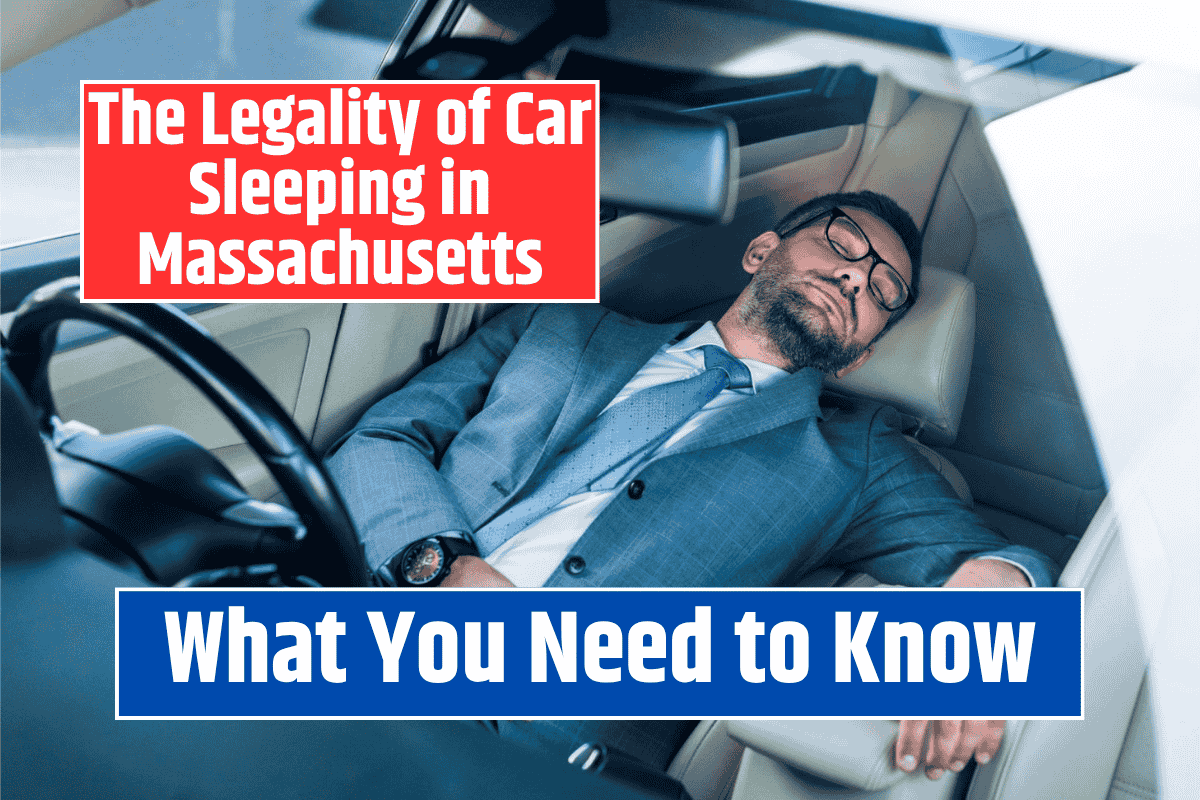Long road trips, late-night driving, or temporary life situations might make you consider sleeping inside your car. But if you’re in Massachusetts, is that allowed? The short answer is yes—it’s not illegal to sleep in your car.
However, where and how you do it can affect whether it’s completely legal or might land you in trouble. This guide explains everything you need to know about sleeping in your car in Massachusetts legally and safely.
Is It Legal to Sleep in Your Car in Massachusetts?
Yes, Massachusetts law does not ban sleeping in your car. If you’re tired during a long drive or need a place to rest for a short time, your car can serve as a temporary shelter.
But the important part is where you park. If you stop at the wrong place—like private property or somewhere with “No Overnight Parking” signs—you can face trouble like trespassing charges or be asked to move by police or property owners.
So, while sleeping in your car is allowed, you must be smart about where you park.
Best Places to Sleep in Your Car in Massachusetts
Here are some safer and legal options where you can sleep in your vehicle:
Rest Areas Along Highways
These are the safest and most legal options for tired drivers. Rest areas are built for short breaks, and Massachusetts allows people to sleep in their cars here. In fact, authorities expect drivers to use rest areas when they’re too tired to continue.
You can stop, rest, and even nap inside your car without worrying about getting in trouble. Just remember to stay inside your vehicle—camping outside or setting up tents is usually not allowed.
Public Parking Areas (Without Signs)
Some public parking lots may allow overnight parking. But this depends on the local city rules. If there are no signs banning overnight parking, and you’re not blocking traffic or causing problems, you may be able to rest there for a short time.
Private Property (With Permission)
If a friend or a business owner gives you permission, you can sleep on their property legally. But never park without asking—you could be considered trespassing, even if you’re just sleeping quietly.
Where You Should Avoid Sleeping in Your Car
Even though the state doesn’t ban car sleeping, some areas can still get you into legal trouble:
Private property like store parking lots, residential driveways, or business areas—unless you have permission
Places with posted signs such as “No Trespassing” or “No Overnight Parking”
School zones, city parks, and residential neighborhoods that may have local rules or homeowners who complain
Always look around for any posted rules before parking and sleeping.
Can You Sleep in Your Car After Drinking?
This is where the law gets serious. If you’re intoxicated and inside a car—even if it’s parked—you can be charged with OUI (Operating Under the Influence) in Massachusetts.
The state law says that if you’re in the car on any public road or space where the public is allowed, you’re considered “operating” the vehicle even if you don’t start driving.
That means
If the engine is on
If you’re sitting in the driver’s seat
If you’re parked in a public place
Then you could still be arrested for OUI—even while asleep.
How to Lower Your Risk
Move to the back seat
Keep the keys out of reach
Park in a safe, legal location like a rest stop
Don’t turn the engine on unless absolutely needed
Massachusetts courts may consider these actions when deciding if you were planning to drive or simply sleeping it off.
Safety Tips for Sleeping in Your Car
Even if it’s legal, always keep safety in mind:
Lock your doors while sleeping
Use window shades or cover windows for privacy
Park in well-lit areas to avoid danger or theft
Stay alert to your surroundings before settling in
Avoid isolated or poorly lit places where help is hard to find
These simple steps can help you sleep peacefully and avoid any risks.
Sleeping in your car is legal in Massachusetts as long as you do it smartly. Rest areas are your safest choice, while private property and city streets may bring legal problems if you’re not careful.
If you’ve had alcohol, avoid sleeping in the driver’s seat or leaving the engine on—OUI laws can still apply even if the car isn’t moving. Use safe locations, stay respectful of parking rules, and always prioritise safety.












